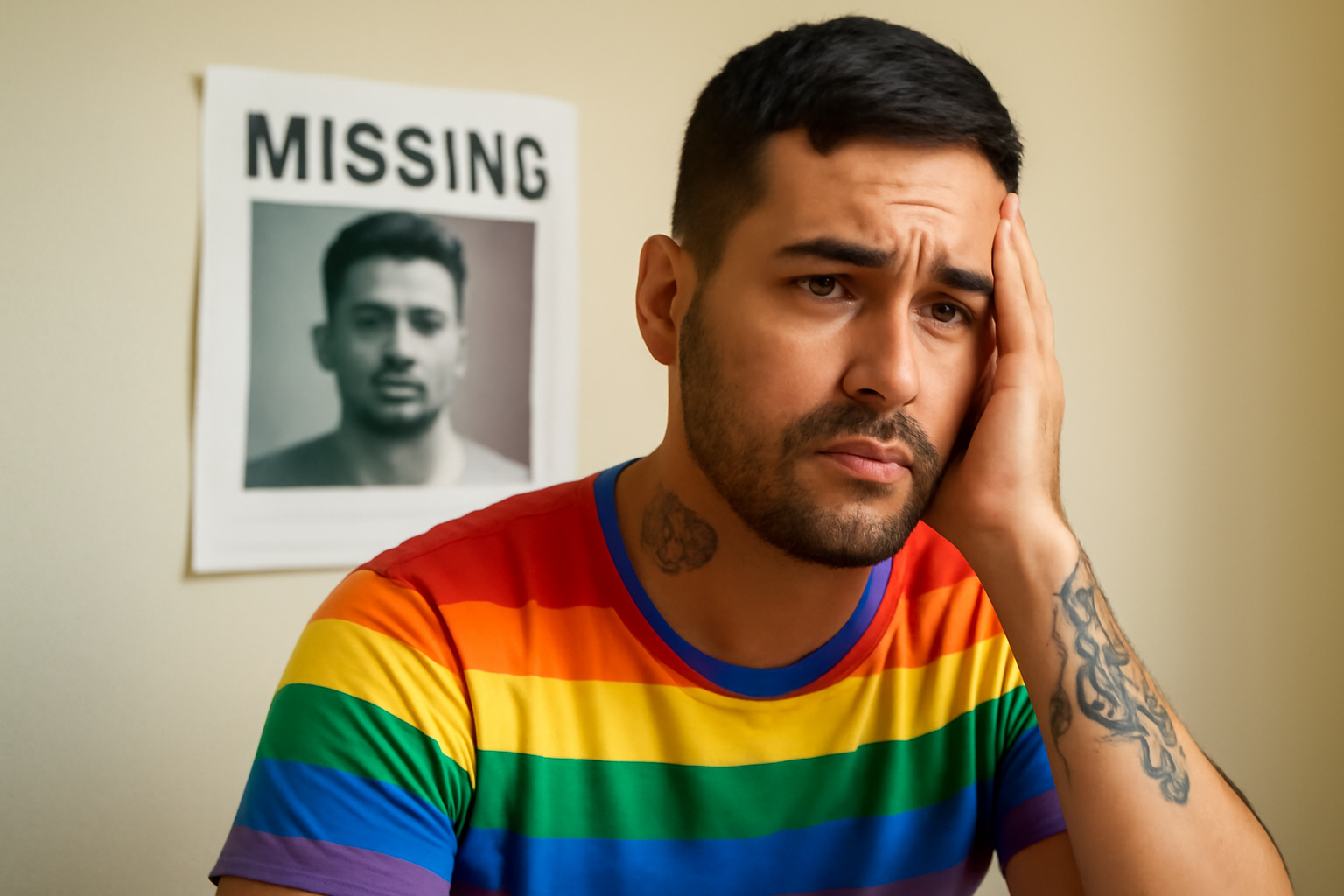
Controversial deportation: LGBTQ+ Venezuelan artist's ordeal ignites outcry
Imagine seeking refuge only be caught in a horrifying whirlpool. That's precisely what's happening with an LGBTQ+ artist from Venezuela who hoped America would be a safe haven. Instead, he's been deported under questionable claims linking his tattoos with terrorism. It feels like he's vanished without a trace—his lawyer and a federal attorney can't pinpoint his whereabouts. Meanwhile, as if adding insult, there's a judicial order against similar deportations being blatantly ignored by none other than our president.
Deportation based on shaky grounds
Lindsay Toczylowski, who leads Immigrant Defenders Law Center, pulled no punches when she took this story public. Her client, who fled Venezuela barely a year ago, ended up detained by ICE. Why? Because his tattoos supposedly tie him with a well-known terrorist group. It all sounds a bit far-fetched, doesn't it?
The murky Tren de Aragua link
Toczylowski insists, “Our client, an LGBTQ artist, had no association with criminal activities.” Yet, ICE used photos as proof, alleging he was part Tren de Aragua—a group Washington has labeled terrorist. The artist was due in court last Thursday, but ICE failed him, leaving everyone in limbo. Calls and checks at his last known ICE holding facility in Texas haven't shed any light. He's even disappeared from their online system. What gives?
Concerns skyrocket over harsh deportation practices
His lawyer passionately argues, “He came seeking safety, but has only faced detention, false claims, and possibly forced removal back.” The urgency around his disappearance isn't just about one man; it underscores a much bigger dialogue on immigrant rights. This isn't just a story—it's a signal flare.
Critics slam current administration tactics, accusing them hiding behind Tren de Aragua claims. They misuse an ancient law—the Alien Enemies Act—to deport people without open conflict. It's a thin veneer over what many say are deeply-rooted anti-immigrant sentiments.
Judicial orders meet executive resistance
Those are staggering numbers—260 Venezuelans sent away on these flimsiest allegations, and not a single public hearing in sight. That's why U.S. District Judge James Boasberg stepped in, demanding a halt. He insists on legal compliance, which seems like bare minimal respect due, right? The administration's response? They labeled his order unlawful and leaned on presidential power.
As Judge Boasberg presses ICE on flight details, DOJ pushes back hard, brushing off his request as unjustified. It's a rapidly escalating confrontation—the president's dismissive stance toward Boasberg and his rhetoric are pushing us toward a constitutional standoff.
Judicial pushback and constitutional quandaries
Chief Justice John Roberts didn't mince words: “Impeachment isn't how we resolve disputes over court decisions. Appellate reviews are.” His caution against harsh words toward judges shouldn't be taken lightly; it can stir up all kinds trouble.
This debacle throws up critical issues: constitutional norms, rights asylum seekers, and how we treat marginalized people clinging hope. It's turning heads—and fast. The drumbeat grows louder: we need transparency, fairness, and solid legal footing in immigration processes. Isn't that what justice should look like?
Related Posts
Triumphant Trans Woman Wins Legal Battle and Inspires Others to Stand Up for Their Rights
Breaking new ground: a landmark victory in transgender rights After battling in courtrooms and enduring endless challenges, Diana Portillo, a transgender woman, has secured a monumental victory in her decade-long fight against workplace discrimination. The result? Nearly $1 million awarded in a historic settlement. But this isn't just a win on paper—it represents a powerful precedent in combati [...]
Pride Month in Latin America: Protests and Demands for Equality
**Celebrating Pride and advocating LGBTQ+ rights in Latin America** Pride Month in Latin America was a lively mix where celebration met activism. Communities united, not just throwing a party but making a stand—demanding equality and pushing governments toward better protection and rights recognition. Throughout Latin America, pride events erupted in marches and cultural displays, each with a c [...]
Transgender Erasure Actions Implemented by National Park Service
```html Trump administration's impact on national park service and transgender recognition The Trump administration made notable moves in undermining transgender representation, which included directing agencies like National Park Service not include "T" and "Q" when they refered “LGBTQ” in any official communication. This move seems part a broader plan by this administration aimed at reducin [...]